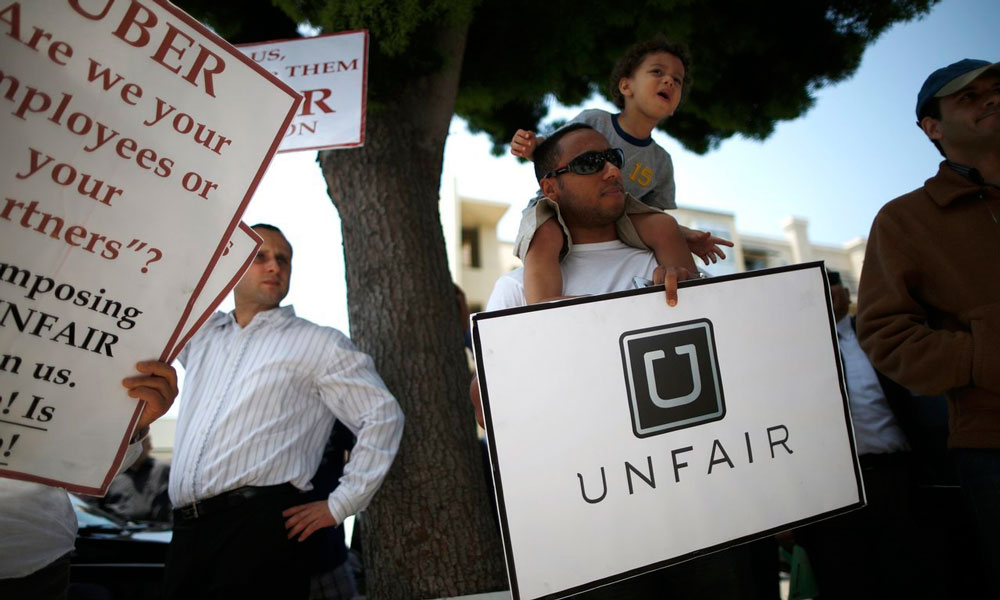
California Uber Ruling Boosts Taxi Associations, Unions
A recent California Labor Commission ruling found that a former Uber driver should have been considered an employee—a conclusion that could bolster the case against Uber's policy of treating drivers as contractors. Trade groups in competing industries, as well as drivers attempting to unionize, hailed the decision.
Uber may not have much reason to cheer about a recent employment ruling in California, but the taxi and limousine industries have plenty.
On Wednesday, the California Labor Commission ruled that, under the law, a former driver for Uber should have been treated as an employee, not a contractor. As a result, Uber now has to pay driver Barbara Berwick more than $4,000 to cover expenses she incurred during the two months she drove for the company.
Uber notes that the ruling applies only to Berwick’s specific situation. But the commission’s conclusion could lead to future legal developments on labor issues for Uber and other stalwarts of the sharing economy.
The Verge‘s Ben Popper put it best: “This might be the most expensive $4,000 the company will ever spend.”
And that’s pretty spectacular news for competing industry groups, which have long been among Uber’s strongest critics and have gone toe-to-toe with the company on policy issues. The Taxicab, Limousine & Paratransit Association has been particularly assertive, using its “Who’s Driving You?” campaign to raise questions about the safety of ride-sharing services.
The National Limousine Association, meanwhile, was quick to respond to Wednesday’s news.
“It is crucial for state and local governments to develop proactive legislation as our industry continues to evolve and the market expands,” NLA President Gary Buffo said in a news release. “The NLA commends the state of California. It is our belief that all ground transportation providers, including ride-hailing services, perform under the same basic guidelines.”
The ripple effects of the ruling could also strengthen drivers’ efforts to unionize. One group in California has done just that by establishing the Teamsters-backed California App-Based Drivers Association last August; a similar group launched in Seattle a few months earlier. But the groups have failed to gain traction with Uber because of its policy that drivers are contractors. Worker groups would hold more sway if other regulatory agencies or courts find that, like Berwick, Uber drivers should be treated as employees.
“If California drivers are employees, they have the right to organize under National Labor Relations Act. And the time to do it is as soon as possible,” argued Business Insider‘s Shane Ferro.
The question of whether drivers are employees remains open for now, but drivers have a lot more ammo than they did a few days ago.
Uber drivers, shown during a 2014 protest against working conditions in Santa Monica, California. (Lucy Nicholson/REUTERS)






Comments